The sixth instalment of Read Local BC’s nine-part gift guide series
Part 1: Books to Relax With
Part 2: Reading for Pleasure
Part 3: Get Creative
Part 4: Books to Inspire
Part 5: Entertainment, Unplugged
Earlier this week we touted books as a centuries-old art form that’s still delivering a wide variety of entertainment experiences. And it’s true! But before there were books, there was storytelling.
Stories can do a lot (as we hope this series shows), but fostering connection is one of the things they do best. Stories connect us to ourselves: they deepen our connection to our own minds and emotional landscapes and offer opportunities for self-reflection. Stories connect us to the people around us: they’re built for sharing and can show how we’re different or, more often, alike. Stories connect us to the world: they pass on knowledge gathered over generations and expose us to experiences outside of our own.
So gather round our Stories for Sharing gift list, featuring books that highlight connection in form (short stories, a flip book), content (themes range from sharing with others to reconciliation), or both!
Stories for Sharing
Short stories, memoir, and Indigenous storytelling for children and adults to foster connection.
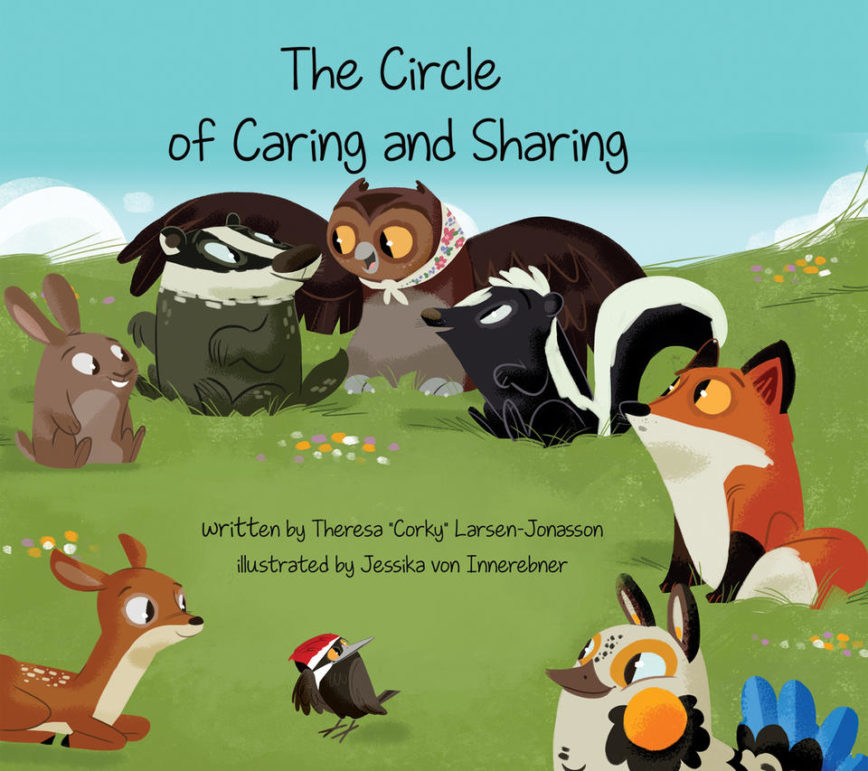
The Circle of Caring and Sharing by Theresa “Corky” Larsen-Jonasson, illustrated by Jessika Von Innerebner (Medicine Wheel Education).
When two foxes who are best friends have a fight, it upsets the whole community of animals. Kokom the Owl knows just what to do, and brings together all the animals to hold a Sharing Circle.
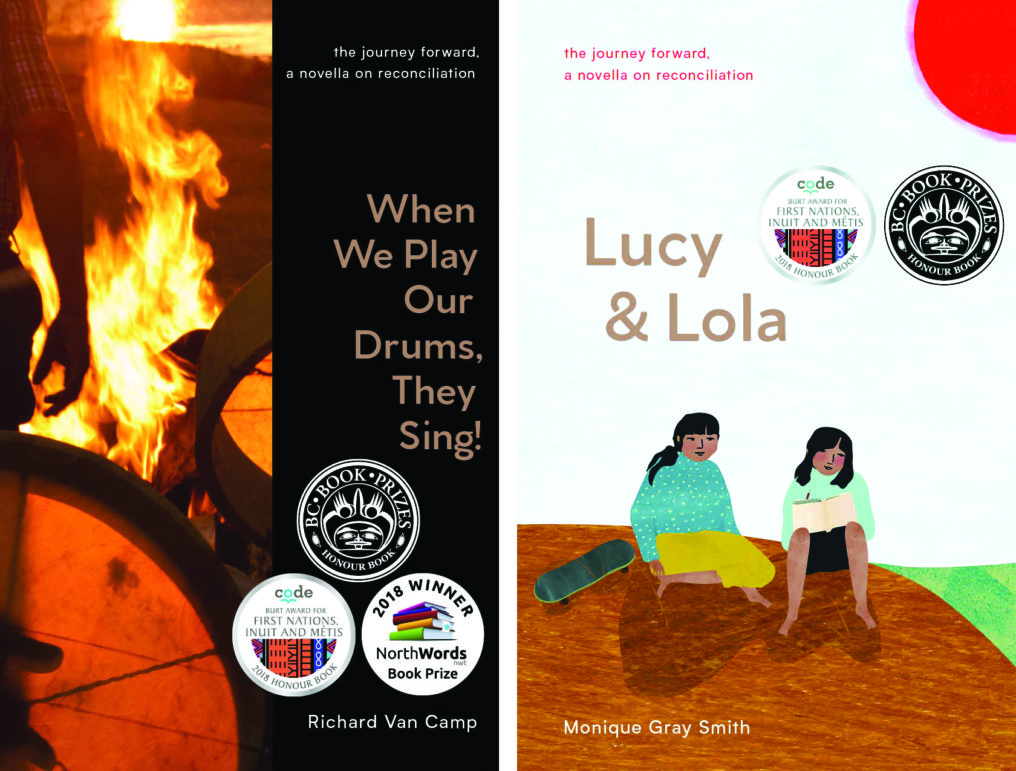
The Journey Forward: Novellas on Reconciliation by Richard Van Camp and Monique Gray Smith (McKellar & Martin).
Two novellas bound together in a “flip-book” format.
When We Play Our Drums, They Sing! by Richard Van Camp is the story of 12-year-old Dene Cho, who is angry that his people are losing their language, traditions, and ways of being. Elder Snowbird is there to answer some of Dene Cho’s questions, and to share their history including the impact Residential schools continue to have on their people.
In Lucy & Lola by Monique Gray Smith, Lucy and Lola are 11-year-old twins who are heading to Gabriola Island, BC, to spend the summer with their Kookum (grandmother) while their mother studies for the bar exam. During their time with Kookum, the girls begin to learn about her experiences in being sent — and having to send their mother — to Residential school.
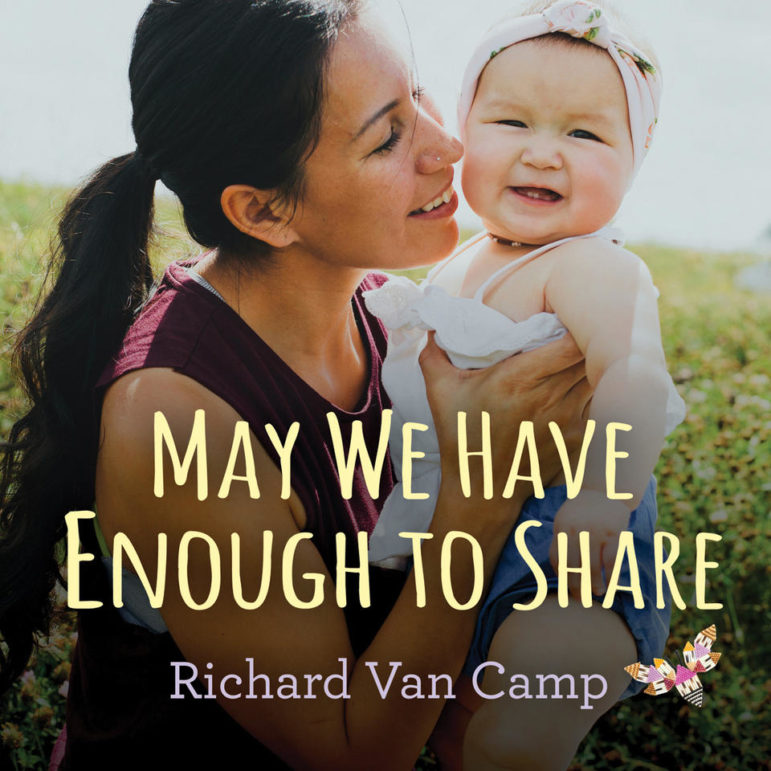
May We Have Enough to Share by Richard Van Camp (Orca Book Publishers).
Award-winning author Richard Van Camp wrote this book to express his gratitude for all that surrounds him and his family. The strength of their connections, the nature that provides for them, the love that is endless. Complemented by photos from photographers who celebrate their own gratefulness on the collective blog Tea & Bannock, the simple verse in May We Have Enough to Share is the perfect way to start or end your little one’s days in gratitude.
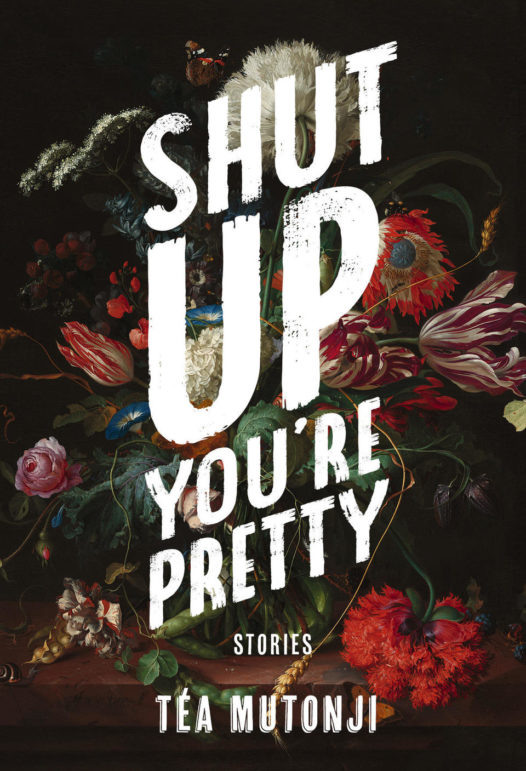
Shut Up You’re Pretty by Téa Mutonji (Arsenal Pulp Press).
In Téa Mutonji’s disarming debut story collection, a woman contemplates her Congolese traditions during a family wedding, a teenage girl looks for happiness inside a pack of cigarettes, a mother reconnects with her daughter through their shared interest in fish, and a young woman decides to shave her head in the waiting room of an abortion clinic. These punchy, sharply observed stories blur the lines between longing and choosing, exploring the narrator’s experience as an involuntary one. Tinged with pathos and humour, they interrogate the moments in which femininity, womanness, and identity are not only questioned but also imposed.
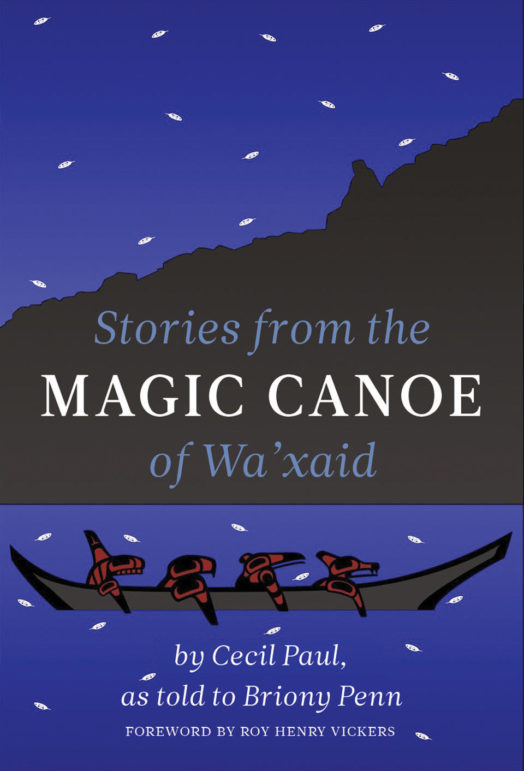
Stories from the Magic Canoe of Wa’xaid by Cecil Paul (Rocky Mountain Books).
A remarkable and profound collection of reflections by one of North America’s most important Indigenous leaders. Told in Cecil Paul’s singular, vernacular voice, Stories from the Magic Canoe spans a lifetime of experience, suffering and survival. This beautifully produced volume is in Cecil’s own words, as told to Briony Penn and other friends, and has been meticulously transcribed. Along with Penn’s biography of Cecil Paul, Following the Good River, Stories from the Magic Canoe provides a valuable documented history of a generation that continues to deal with the impacts of brutal colonization and environmental change at the hands of politicians, industrialists and those who willingly ignore the power of ancestral lands and traditional knowledge.

